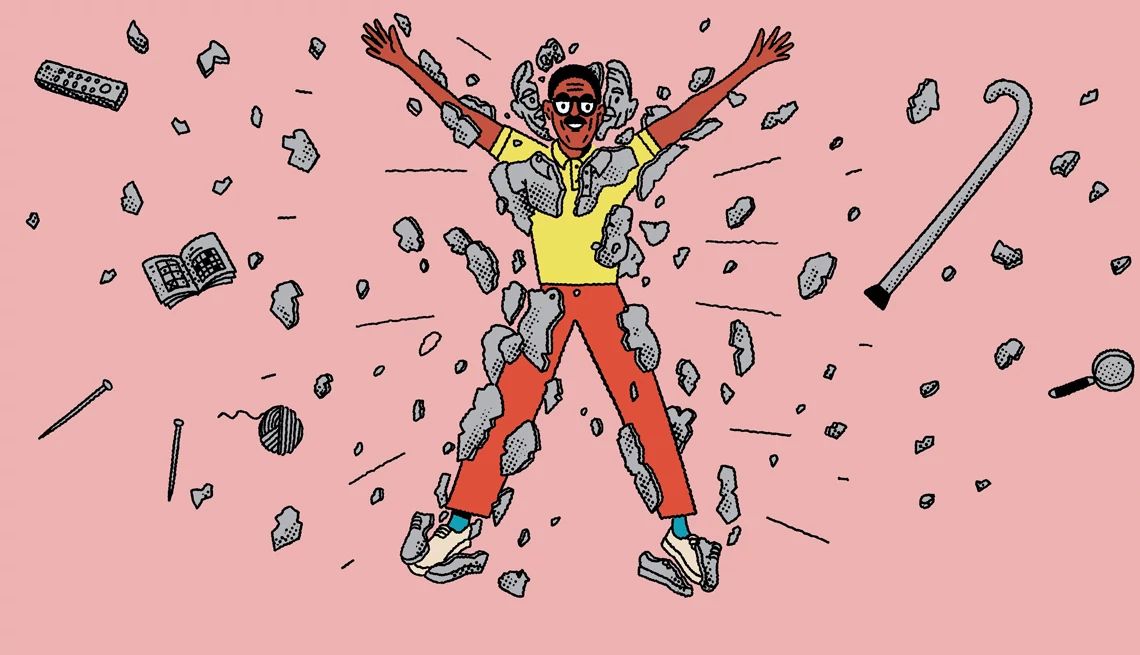AARP Hearing Center


There’s a lot of baloney out there about growing older.
Misinformation about aging — warnings that memory loss is inevitable or sex is for younger people, for example — may discourage us from doing things that can improve our lives. It turns out that believing ageist myths and stereotypes doesn’t do us any favors.
“Cultures that are more age positive may have more age-positive messaging, and that can have a beneficial impact,” says Becca Levy, a professor of epidemiology and psychology at the Yale School of Public Health and author of Breaking the Age Code: How Your Beliefs About Aging Determine How Long & Well You Live.
Levy has spent the past three decades studying how beliefs about aging affect us. She’s learned that people who have a more positive view of the years ahead maintain more volume in the hippocampus — a part of the brain important to memory. Those people also have fewer of the brain plaques and tangles that can lead to Alzheimer’s disease. Negative aging myths, on the other hand, can undermine a person’s confidence and increase stress, producing unhealthy levels of the hormone cortisol, she says. And consistently high cortisol levels can lead to chronic inflammation, high blood pressure, high blood sugar and a weakened immune system.
Levy suggests a three-pronged “ABC” approach to changing views: Awareness of the myths that surround us; Blaming ageism, not age, when someone dismisses us (or we dismiss ourselves) as too old to matter; and Challenging myths about aging on both a personal and societal level.
Let’s start with crushing these 10 myths.
1. There’s no avoiding dementia
Yes, we see more cases of late-life dementia because more people are living longer. But only about 10 percent of U.S. adults 65 and older actually have dementia, according to a 2022 report led by neuropsychologist Jennifer J. Manly at Columbia University Irving Medical Center and colleagues. And we can do things to help lower our risk, says Miquel Arce Rentería, an assistant professor of neuropsychology at Columbia, pointing to really strong links between heart health and brain health.
“It makes sense because it’s all connected, it’s all one big system,” he says. One important finding: Health issues in midlife, such as hypertension, which affects a third of people age 40 to 59, have long-term effects on the brain. Don’t wait to do something about conditions like high cholesterol or high blood pressure. And if you do notice a significant mental change, get it checked out. The problem could be something other than dementia — and treatable.
2. New tech? Better call a grandkid!
The idea that you need a young brain to figure out technology is nonsense, says Thomas Kamber, executive director of OATS (Older Adults Technology Services) from AARP, which provides online and in-person technology training. Yes, we may get more frustrated than a digital native when new tech doesn’t work, Kamber says. But that doesn’t mean our brains are the problem (maybe we just believe a product should actually do what it’s supposed to).
“Older people learn technology at an absolutely decent clip wherever there’s a life relevance for them,” he says. Need to up your tech game? Ask at your local library or senior center, or at oats.org. And if you’ve got a grandkid willing to help, go for it.




































































You Might Also Like
5 Simple Ways to Have More Fun at 50+
Don’t let being a grown-up stop you from feeling like a kid again
As You Age, Is It Time to Rethink Your Bucket List?
For National Bucket List Day, here’s how to take stock of your life goalsGladness Gurus Share Top Tips for Finding Happiness
These strategies can make every day more fun, festive and fulfilling